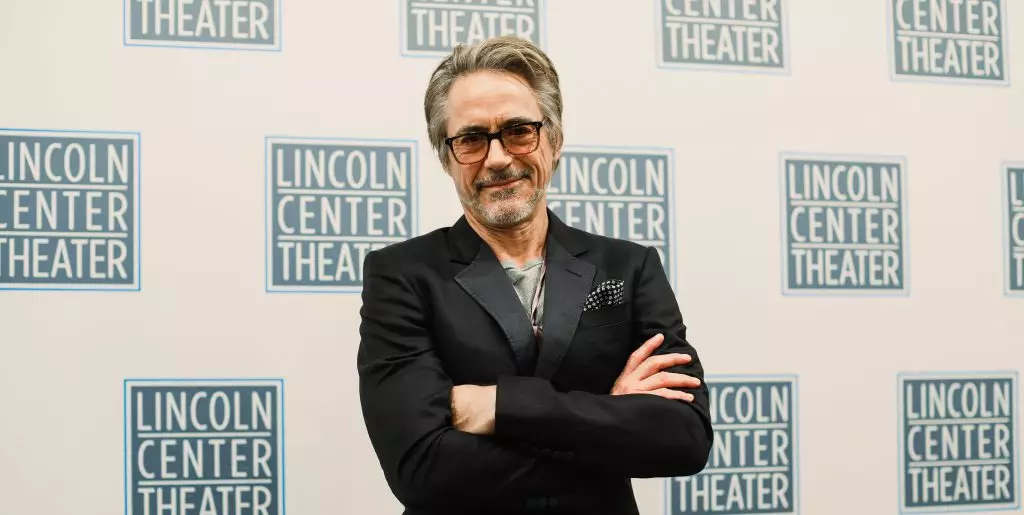In an age where technology continues to blur the lines of reality, few voices resonate as clearly as that of Robert Downey Jr. With an illustrious career spanning decades and roles that have cemented his status in pop culture, Downey’s perspective on generative artificial intelligence (AI) is both enlightening and cautionary. During a recent conversation on the podcast *On With Kara Swisher*, he articulated his concerns regarding digital recreations of actors and the ethical implications of such technology. His remarks paint a picture of a celebrity wrestling with the complexities of modern advancements while maintaining a firm commitment to integrity and artistry.
When discussing AI, Downey acknowledged an emotional detachment from the overwhelming progress. He mentioned, “I feel about it minimally because I have an actual emotional life that’s occurring that doesn’t have a lot of room for that.” This quote underscores a profound truth about celebrity life—immense public scrutiny can cultivate a protective detachment. By choosing not to engage deeply with emerging technologies, especially those that may threaten his essence as an actor, Downey positions himself as a guardian of his own likeness.
Moreover, this emotional stance is vital for artists, akin to an immune response to existential crisis brought about by technological advancements. The reliance on emotionally driven storytelling could be jeopardized by a future where past performances are replicated without consent or nuance. Downey’s lack of enthusiasm for AI’s current trajectory reflects a broader sentiment shared among artists who fear the commodification of their very identity.
In a world where CGI and deepfakes could resurrect beloved characters like Tony Stark, Downey expressed a surprising level of confidence in Marvel’s leadership. He stated, “I’m not worried about them hijacking my character’s soul because there’s like three or four guys and gals who make all the decisions there anyway.” His trust in current executives may stem from a mutual understanding cultivated over years, yet his quip about future decision-makers eliciting legal action demonstrates a pragmatic approach to the uncertainties ahead.
This notion casts a shadow on the precarious predictive nature of corporate intentions in the entertainment industry. Downey’s jest about suing future executives— “I intend to sue all future executives just on spec”—serves as a playful yet serious warning against the exploitation of his persona. His comments suggest a proactive need to establish legal frameworks protecting the integrity of artistry in an AI-dominated landscape, urging industry stakeholders to tread cautiously.
While Downey clearly outlines his apprehensions about AI recreations, he also delves deeper into the ethical concerns surrounding the technology. His investment in select AI corporations showcases a nuanced viewpoint, one that contrasts starkly with rampant fearmongering often associated with AI discourse. He articulated his reservations well when he asked not about technology itself, but rather about the people behind it: “Do I think they have a moral psychology? For what reason are they deploying this?”
Downey’s inquisitive nature is a model for how celebrities can engage with vestiges of technology responsibly. His approach signifies a shift away from binary perceptions of technology as either wholly beneficial or entirely detrimental. His desire to understand the ethical dimensions associated with AI companies encourages artists to wield an informed perspective, driving constructive dialogue about the accountability of creators and technicians.
As he continues to adapt to his role as an artist in a rapidly evolving landscape, Robert Downey Jr. embodies the complexities of navigating celebrity, technology, and moral responsibility. His recent projects—like *McNeal*, where he portrays a novelist utilizing AI—reflect a sensitivity toward the implications of such technology while grounding it in human experience.
Ultimately, Downey’s nuanced stance on generative AI calls for a collective awakening within the entertainment industry. As stakes escalate, artists, executives, and technologists must collaborate to forge a future where creativity and ethics coexist harmoniously. The conversation he sparked serves as a catalyst for deeper exploration into how we engage with artificial intelligence—ensuring it enhances rather than undermines human artistry.


Leave a Reply